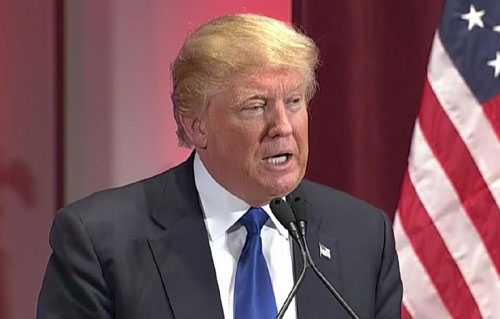FPI / February 24, 2020
At the start of Donald Trump’s presidency, Democratic-appointed judges held an 11-seat majority on the liberal 9th Circuit Court of Appeals.
After the Senate confirmation of Lawrence VanDyke and Patrick Bumatay to the San Francisco-based 9th Circuit late last year, that Democratic majority on the 29-member bench is now just three.

Nearly all legal complaints lodged in nine Western states are handled by the 9th Circuit. The court is weighing challenges to Trump on several major issues, including immigration and reproductive rights.
Trump has called the 9th Circuit “a complete and total disaster” and a “big thorn in our side.”
“The circuit has been the go-to venue for activist state attorneys eager to freeze Trump policies on health care, immigration and other social issues,” Susannah Luthi noted in a Politico analysis. “It ruled against Trump’s weakening of Obamacare’s contraceptive mandate, as well as multiple versions of his travel ban.”
The 9th Circuit is now weighing the Trump administration’s overhaul of the federal family planning program, the “public charge” rule that denies green cards for individuals who participate in programs like Medicaid — and it could take up the “conscience rule” allowing health providers to opt out of providing care on religious or moral grounds.
“With Congress largely gridlocked, the rules often are the only way to change policies, even if they’re often challenged in court. And transforming the judiciary to make it more sympathetic to such an agenda could be one of the enduring victories of Trump and Senate Majority Leader Mitch McConnell that will far outlast their time in office,” Luthi wrote.
Trump has now named 10 judges to the 9th Circuit, compared with seven appointed by President Barack Obama over eight years. The federal appeals courts are just one rung below the Supreme Court, and federal judges serve for life.
“Trump has effectively flipped the circuit,” 9th Circuit Judge Milan D. Smith Jr., an appointee of President George W. Bush, told the Los Angeles Times.
“Ten new people at once sends a shock wave through the system,” a 9th Circuit judge who spoke on condition of anonymity told the LA Times.
The LA Times noted that the court also has judges on “senior status” who continue to sit on panels that decide cases. “Senior status rank gives judges more flexibility but allows them to continue to work, even full time,” the report said.
Of the senior judges who will be deciding cases on “merits” panels — reading briefs and issuing rulings — 10 are Republicans and only three are Democratic appointees, Judge Smith said, adding “You will see a sea change in the 9th Circuit on day-to-day decisions.”
Smith predicted the full effect of the Trump appointees won’t be seen until 2021, when they will be carrying full caseloads.
“But even now Democratic appointees are likely to be more reluctant to ask for 11-judge panels to review conservative decisions because the larger en banc panels, chosen randomly, might be dominated by Republicans,” judges told the LA Times.
That happened in July 2019, the report said, after a panel of the three Republican appointees upheld a Trump ruling denying federal family planning funds to clinics that referred women for abortions. A Democratic appointee called for en banc review, and a majority voted in favor. But the randomly selected 11-member panel had a majority of Republican appointees, including two named by Trump.
The 9th Circuit isn’t the only court whose makeup has changed through Trump’s conservative nominees and McConnell’s focus on confirming judges. The 2nd Circuit in New York and 3rd Circuit in Philadelphia now have Republican-appointed majorities.
Intelligence Brief __________ Replace The Media
